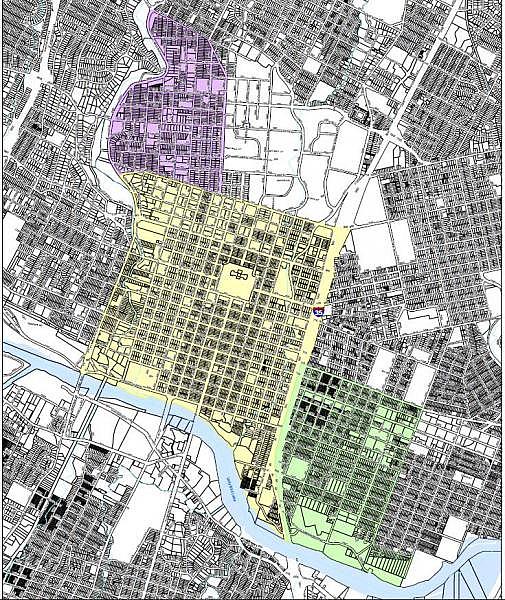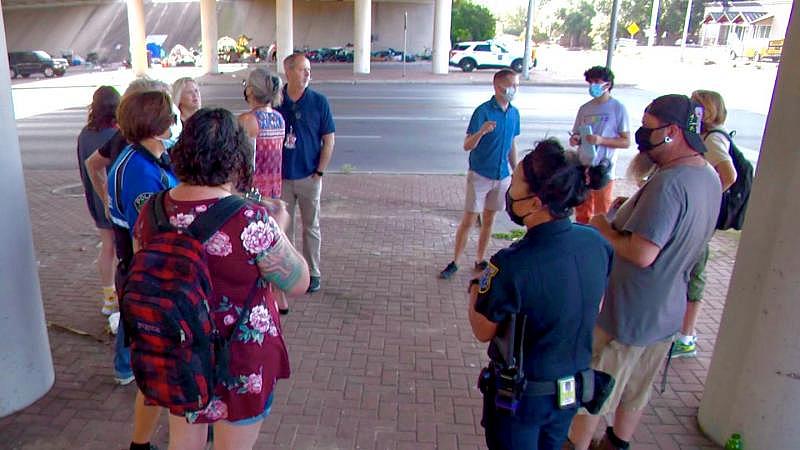Austin court’s redirection of those committing low-level crimes could be saving taxpayer money
This project was produced as a project for the USC Center for Health Journalism's 2021 National Fellowship.
Other stories by David Barer and Josh Hinkle include:
Mental competency consequences: the hidden, unreliable data Texas tracks… or doesn’t
Wrong races, hidden names among data challenges our team faced with jail mental health project
Jail waitlist for mental health help hits new record. This plan proposes a statewide fix.
State of Texas: Leaders consider ‘consequences’ of not tracking state hospital waitlist data
Mental Competency Consequences: The Hidden and Unreliable Data Texas Tracks — Or Doesn't
A state hospital death in restraints and seclusion: What happened to Justin Reeder?
State mental hospital backlog grows, new record exceeds 2,500 waiting in jail
‘Horrifying’ wait times for state hospital beds, official says
Despite waitlist record, leaders keep pushing ‘Eliminate the Wait’ plan for state hospitals
Thousands waiting in jail for state hospital beds, is help coming?

Investigative Summary:
For two years, KXAN has explored a growing backlog of people in Texas jails who need mental competency restoration. While an advisory committee has largely focused on finding state hospital beds for that group, our team took a closer look at the backgrounds of individuals on the waitlist to determine trends that could help drive down numbers. We found data on this topic is often hidden or unreliable – a discovery sparking promise for change from state leaders. The resulting “Mental Competency Consequences” project is supported by the USC Annenberg Center for Health Journalism.
AUSTIN (KXAN) – Of all clothing items, Bailey Gray said she restocks jeans most often in the Downtown Austin Community Court’s closet. The DACC helps get its clients experiencing homelessness back on their feet, and Gray said jeans are better than sweatpants when they are looking for work.
“We have reading glasses, which is very important. Oftentimes our clients don’t have access to reading glasses or the proper medical care to get prescriptions,” said Gray, a DACC clinical case manager. “It’s easy to lose things on the street.”
That closet of clothes and daily necessities is just a part of the services DACC provides.
The court covers a confined area of Austin — downtown, West Campus and section of east Austin — and its cases include the lowest crimes — Class C misdemeanors.
The Downtown Austin Community Court’s jurisdiction sits in central Austin, stretching from West Campus through downtown and into a portion of east Austin. The court hears Class C misdemeanors and works to rehabilitate individuals experiencing homelessness who repeatedly get charged with low-level crimes. (City of Austin Photo)
But while the DACC’s jurisdiction may be small and its cases relatively minor, keeping the people passing through, who are often experiencing homelessness and mental illness away, from more serious courts can have an outsized impact on the local and state criminal justice system.
DACC is rehabilitative rather than punitive, said the court’s administrator, Peter Valdez.
“They often refer to us as a restorative justice court, where we focus on assisting repeat offenders and connecting them to services so that those repetitive offenses stop,” Valdez said.
Jail waitlist for mental health help hits new record. This plan proposes a statewide fix.
The court helps people obtain important items to stabilize their lives, like identification cards, birth certificates and hygiene products. It also offers connections to other organizations that can assist them, he said.
These small, low-cost tasks could seem insignificant in the grand scheme of the criminal justice system, but they are being increasingly recognized by criminal justice experts as critical components of early intervention. Helping a person get their life on track with clothes and transportation is far cheaper and less burdensome on the system — and taxpayers — than dealing with the fallout of more serious crimes that could land a person in jail, looping through competency restoration.
‘Frequent utilizers’
DACC began in 1999 with two case managers. The court now has a 20-person case manager unit, Valdez said. Those workers spend about three-quarters of their time in the field, contacting and assisting their clients, which can include transporting them to meetings and appointments.
Case workers with the Downtown Austin Community Court join an outreach team working to connect people experiencing homelessness with stability services. (City of Austin Photo)
The court’s yearly caseload has plummeted in the past eight years. Around 2014, Valdez said the court was processing about 15,000 cases. Last year the court saw about 700, he said.
Part of that drop could be attributed to changes in policing and a larger focus on “higher crimes,” Valdez acknowledged. DACC is also having an impact.
At its peak, the court had about 300 “frequent utilizers,” or individuals with a pattern of violations that landed them back in court often. To get that label, a person would have had 25 cases in the court and at least one active case in the last two years.
In October, the number of frequent utilizers had dropped to about 81, Valdez said.
DACC is also part of the city’s homeless outreach team, which includes police, emergency medical services and workers from Travis County’s local mental health authority Integral Care, he said.
The outreach team visits homeless camps, builds trust and finds individuals who will accept assistance. Then the team connects them to help, Valdez said.
//Connecting homelessness and mental illness
Mental illness, homelessness and the criminal justice system are interconnected, said Valdez and state hospital leaders. Providing services that pull a person out of homelessness or stabilize their mental illness can avert their entry into higher levels of the criminal justice system where the consequences can become dire.
KXAN has heard stories from individuals experiencing mental illness who are stuck in jail, languishing, refusing to eat, declining medication and ultimately dying.
Wrong races, hidden names among data challenges our team faced with jail mental health project
If a person is charged with a crime and found incompetent to stand trial, they are most often sent to state mental hospitals to be stabilized before they can proceed with their case. But the state’s mental hospital system is full. Mentally incompetent people are now waiting in jail for months, sometimes over a year, to get a bed. In October, the state hit a record high, when the number of people on the waitlist exceeded 1,830 people.
The statistics in Travis County are stark, where a KXAN analysis found since 2018, about 44% of the individuals charged with a felony and found incompetent to stand trial were also experiencing homelessness.
The sooner a person can get help, the better chance a person can avoid those dire situations, Valdez said.
“It is important to intervene early, but it’s also about maintenance and helping them maintain that stability,” Valdez said. “Part of maintenance is getting them into housing because it’s going to be very difficult for them to keep up with their medication.”
Mental competency consequences: the hidden, unreliable data Texas tracks… or doesn’t
That early intervention and maintenance can be as simple as a ride to clinic, or a better pair of pants. Those things can seem “trivial,” said Gray, but for people that have gone without, they can offer a real confidence boost.
“It makes me happy that I can organize (the closet) and have it readily available for people to grab it if they need it,” Gray said. “I’m glad that we’re stocked the way we are. Makes your heart feel good.”
[This story was originally published by KXAN.]


